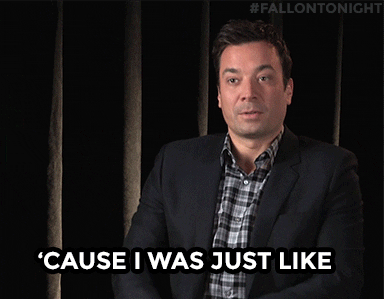9 Lifestyle Factors To Address If Public Speaking Makes You Super Nervous
If public speaking makes you super nervous, you’ll be looking for any hacks you can find to reduce your nerves.
Well, did you know certain lifestyle factors can contribute to feelings of anxiety and nervousness?
So, if you want to get your nerves under control, you must think holistically.
Here are 9 things that can exacerbate nerves. Some of these might surprise you.
1. HUNGER
If you don’t eat for a while, this causes a drop in your blood sugar levels, which can result in you feeling irritable, stressed, anxious and nervous.
You might have intuitively felt this yourself before.

However, it’s proven by science. A 2018 study on rats proved the link between hunger and these symptoms.
When the rats were given a glucose blocker, researchers found they had higher levels of cortisol (the stress hormone) and they also showed signs of anxiety / avoidance.
So, try and make sure you eat well before a big presentation and bring snacks with you if you’ll need them.
2. SUGAR
Drinking energy drinks or fuelling yourself with lollies before a big presentation are a real no-no if you get really nervous or anxious about public speaking.
Consuming large amounts of processed sugar has been shown to lead to feelings of anxiety, irritability, and sadness.

I used to drink Red Bulls every day (ewww I know…), but now I don’t because I don’t want anything that toxic in my body, disrupting my mood and emotions. We’re the biggest asset we have, so I’m really conscious of the sugar I eat now and I’ve scrapped energy drinks completely.
Instead, ideally, just drink water and have something healthy to eat (something raw like a piece of fruit, or the less processed the better).
3. CAFFEINE
Caffeine stimulates the central nervous system, which means too much of it can cause anxiety-related symptoms.
This includes increased blood pressure, a rapid heartbeat and restlessness.
Or if you have even more, it can lead to jitters, shakes, and an irregular heart rhythm.

A 2015 study found that many people who consumed more than 400 mg of caffeine per day reported anxiety and mood disorders.
I’m not saying you can’t have your normal coffee. However, if you do get quite nervous, try and limit it to one cup only.
4. LACK OF SLEEP
I personally know that my inner critic is a lot louder when I’m super tired. It’s also harder to reign in (than when I’ve had a good sleep the night before).
Short-term effects of a lack of sleep include an increased stress response, emotional distress, depression and anxiety.

So, the night before an important presentation, aim to go to bed early and get a big sleep.
If you’ve slept well you’ll feel fresh and more positive, which will all translate to feeling less anxious or worried about your talk!
5. DEHYDRATION
Did you know the brain is roughly 75% water? Also, our bodies are made up of 60% water too.
Whilst dehydration can cause us to feel more tried, it can also cause feelings of anxiety, depression and tension.
In 2018, a study of over 3,000 adults found that the more water you drank, the lower your risk for anxiety and depression. In a smaller 2014 study, they found that when regular water levels dropped, those people felt less calm, less content, and more tense.
So, make sure you drink lots of water in the lead up to a big talk.

I’ve now switched to 500ml glasses of water at home, so I only need to have 4 per day, instead of 8 per day. Just this switch alone has meant I now always hit my daily water target.
6. SHALLOW BREATHING
When we’re stressed or nervous, we alter our breathing as a coping mechanism to prepare for the fight or flight response. We essentially take shallow breaths to conserve energy.
However, this in turn activates the sympathetic nervous system. The body instinctively thinks it needs to get ready for action when we are shallow breathing.
Then we release the stress hormone cortisol and this in turn increases our heart-rate. Which can result in us feeling even more nervous!

So, make sure you’re consciously breathing deeply ahead of an important or stressful talk.
It will automatically send a message to your brain to calm down and relax. The brain then in turn sends this message to your body, which gets to work decreasing the physical symptoms you’re feeling.
7. POOR MOVEMENT
Exercise lowers stress and cortisol (the stress hormone).
So, if you spend the day of your talk sitting, or worse, hunched over your laptop, working away, that will contribute to greater nerves.
A study by Amy Cuddy in 2010 found that those who held high-power poses prior to a job interview experienced a 20% increase in testosterone levels (linked to confidence), and a 25% decrease in cortisol levels (linked to stress).
On the flip-side, those who held low-power poses had a 10% percent decrease in testosterone, and a 15% increase in cortisol.

Additionally, the ‘high-power pose’ people were rated as more passionate, enthusiastic, authentic, and captivating than those who had assumed the low-power poses. The judges also indicated they’d be more likely to hire the high-power pose individuals than the low-power pose individuals.
So, there’s a direct correlation between the way you use your body and your emotions, confidence, and sense of relaxation.
If you can go for a walk or run the morning of, or hold a power-pose before-hand, you’ll feel and appear more confident and less stressed. Win Win!
8. LACK OF PREP
If you leave your presentation to the last minute, chances are you will be feeling anxious and nervous in the lead up as you’re not even ready.
You may have even left yourself less time to prepare than you would like, so your presentation isn’t going to be as good as you’d like.

If you can prepare days or even weeks in advance, you will feel so much more confident and much less anxious.
9. RUSHING
I doubt I even need to explain this one in detail.
If you’re rushing as you lead into a presentation, it can leave you feeling frantic.

Even if you’ve prepared well, if you have too much else on your plate leading up to or right before your talk, this can leave you feeling anxious.
If you can, clear your diary beforehand and/or leave really early. You will feel a lot calmer if you can do this!
IN SUMMARY
I’ll summarise by saying this. If you find giving a presentation nerve-wracking, pay close attention to how many of these things may be exacerbating those feelings of nerves.
You need to think holistically and address what you can, so you head into your presentations feeling calmer and more confident.
Personally, I used to be guilty of ALL of these and I’ve adjusted all of them. The biggest ones that seem to affect me the most are lack of sleep and rushing before-hand. So I make sure I keep these in check.
Which of these are the biggest culprits for you?
Until next time,
Emily

Emily Edgeley is a Public Speaking Coach for the Technology industry. Since 2017 she’s run over 100 group coaching sessions, coached more than 200 people privately, and formally supported first time and experienced speakers at 10 Conferences, covering 1000+ people across the globe.
She’s on a mission to help anyone in the Tech arena learn how to speak with clarity, impact, and confidence, whether that’s at work or at a Conference. So they can share their ideas competently, elevate their personal brand and start to enjoy ‘public speaking’!
She’s also a regular podcast guest, a writer, a mum of one, a massive dog lover and a fan of cryptic crosswords.


Recent Comments